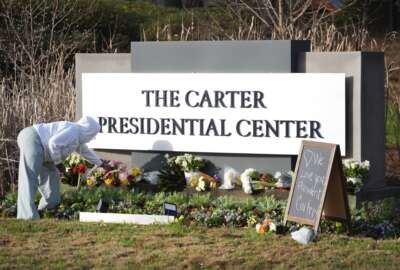Louisiana Senate to consider bill to end death sentences
Louisiana senators are moving ahead with a bill to end executions in the state, a rare proposal in a Republican-controlled region that tends to favor capital...
BATON ROUGE, La. (AP) — Louisiana senators are moving ahead with a bill to end executions in the state, a rare proposal in a Republican-controlled region that tends to favor capital punishment.
A Senate judicial committee Tuesday voted 6-1 to have the full Senate consider the proposal, which would eliminate the death penalty as punishment for any offenses committed on or after Aug. 1.
Even though he supports capital punishment, Republican Rep. Steve Pylant told the committee that cash-strapped Louisiana should not be spending money on costly death penalty appeals, especially when only one person has been put to death in Louisiana since 2002.
“In Louisiana we’ve lost the will to carry out executions,” he said. Pylant is co-sponsoring an identical bill in the House.
A familiar coalition of religious leaders and defense attorneys attacked capital punishment, citing moral concerns and questioning whether it deters crime. The state’s 82 percent reversal rate of death sentences since 1976 is the highest in the nation, but supporters of the death penalty said some of the reversals have come about from technicalities.
A more unorthodox defense of the bill came from former Louisiana prosecutor A.M. Stroud. Stroud recounted how he and his legal team had “celebrated the night away” after securing the death sentence in the 1984 first-degree murder trial of Glenn Ford. Three decades later, Stroud found out that Ford, who was still on death row, was in fact innocent. Ford was released from prison, given a $20 gift card and died a year later.
“I think about Glenn Ford every morning when I wake up,” Stroud said. “We human beings cannot handle the power of life and death. We’re not designed to do that. That’s God’s work.”
Although the bill says the proposed law would not apply retroactively, critics said they feared future courts would not allow the 74 inmates sentenced to death in Louisiana to be executed and instead could one day release them on parole.
Southern University Law School professor Michelle Ghetti and her daughter, Christie Battaglia, both said they were terrified by the possibility of Ghetti’s ex-husband, John Battaglia, ever being released from death row in Texas.
With her daughter sobbing next to her, Ghetti described how her ex-husband killed the two young daughters he had had with his second ex-wife, Mary Jean Pearle, while Pearle was on the phone with him in 2001.
“I am confident that if he had the chance to not be in prison, I would not be here anymore,” said Christie Battaglia, who was a teenager at the time of the slayings. “The worst way to hurt Mary Jean was to hurt the girls. His hatred for (my mother) is more than his love for me.”
Gov. John Bel Edwards, a Democrat, hasn’t taken a position on banning capital punishment.
Thirty-one states allow the death penalty. Louisiana’s last execution took place in January 2010 after convicted murderer Gerald Bordelon waived his right to appeal. The state’s next planned lethal injection is on hold until at least 2018 pending a federal lawsuit challenging the method.
Copyright © 2025 Federal News Network. All rights reserved. This website is not intended for users located within the European Economic Area.





